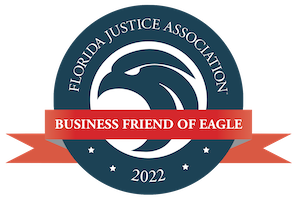Test How Fiction Increases Empathy With Mock Jury Focus Groups
If lawyers can garner empathy from jurors, they can generally put their case in a favorable position. As we’ve seen, empathy has been a driving force for the success of civilization, small communities, and individuals throughout time. And this can be tested with mock jury focus groups before entering the courtroom.
Weaving together a story that encourages empathy will firmly commit jurors to a lawyer’s side. Seeking truth and justice should always be the goal of any courtroom proceeding. But plain facts and statistics do not encourage empathy. Fiction does.
Therefore, courtroom lawyers must hone their storytelling abilities. Indeed, telling a great story is one of the strongest assets a good trial lawyer can have.
Fiction and Empathy in the Courtroom
A few years back, the concept of empathy drew the interest of researchers in the psychology field. Through multiple studies, psychologists began to draw a link between the level of empathy research participants showed and the amount of fiction literature these individuals consumed.
But why is this the case? On the surface, it would seem that someone who consumed more non-fiction would be better able to relate to others. After all, non-fiction events actually transpired at some point. How can there be any better way to relate to others than learning about real experiences?
Let’s take a look, starting with some definitions.
Clear Definitions
With any practical discussion, it’s always important to begin by defining terms.
• Empathy: the action of understanding, being aware of, being sensitive to, and vicariously experiencing the feelings, thoughts, and experience of another of either the past or present without having the feelings, thoughts, and experience fully communicated in an objectively explicit manner.
• Fiction: something invented by the imagination or feigned.
So, to rephrase the initial premise: “’something that is invented by the imagination’ increases the ability to ‘vicariously experience feelings, thoughts, and experiences of another.’”
But this stance can cause issues with some of our core beliefs. For example, if this premise is true, how is it compatible with “survival of the fittest” and the evolution of our species?
Empathy and Evolution
We have long held that “survival of the fittest” led to our evolution as a species. While this is widely accepted in broad terms, it’s important to note that kindness, sympathy, and empathy have enabled communities to thrive throughout all of civilization. If our communities were simply based on “survival of the fittest” in its purest form, we would immediately cast aside members of our society who were not as “fit” to thrive in the world.
But this is not at all how we operate in civilization. We take care of our elderly, our sick, and our disabled. We are horrified when these vulnerable members of our society are treated poorly. Swift justice is sought when one violates our natural, agreed-upon rules of compassion and empathy.
To further emphasize this point, we can look to the great works of literature and storytelling throughout the years. Stories that have been passed down through the generations continue to teach us the importance of empathy, morality, kindness, and the golden rule. While these stories were based on real people and real events, they largely came from the imagination (some of them even used farm animals as the main characters). In other words, they were fiction.
Weaving a great story will definitely help engender empathy from the jury. Fortunately, you can know what the reaction will be before having to present in court. Using AI-Powered digital focus groups to test out how empathetic one’s storytelling is with a mock jury focus group is an inexpensive way to know the effect of your presentation ahead of time.



